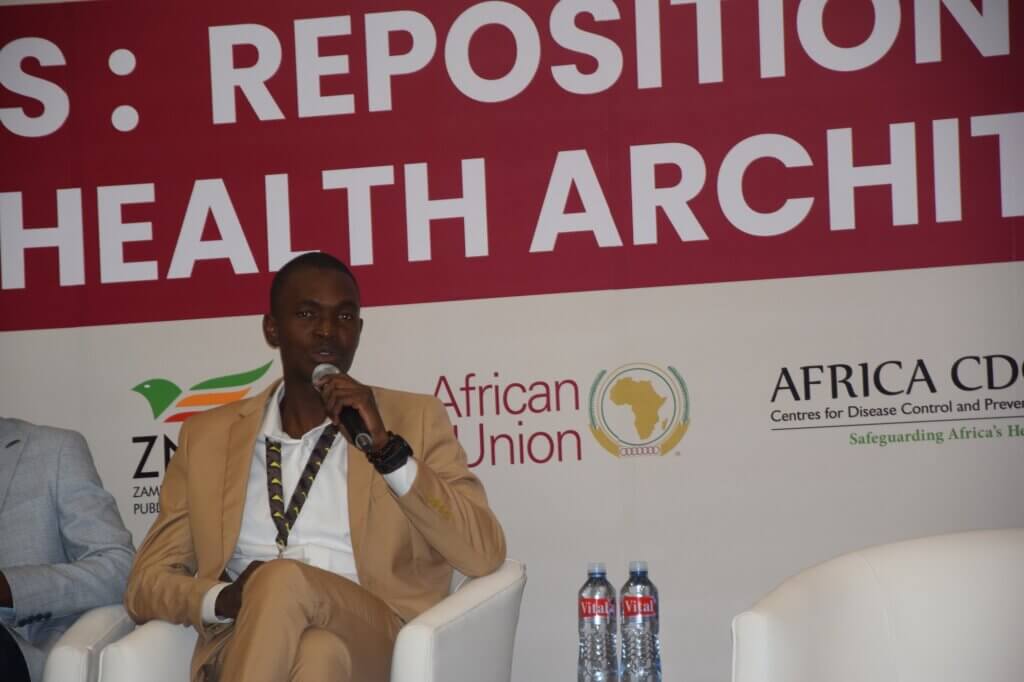Aiming to highlight Africa’s progress to overcome obstacles and reinforce its position as a force in science and innovation, the 3rd Conference on Public Health in Africa (CPHIA 2023) was the place to be for a researcher like me. I had the opportunity to present a study on factors influencing the motivation of Community Health Workers (CHWs) and was at the heart of fascinating discussions and memorable moments during the various sessions. CPHIA 2023, which this year looked at “Breaking barriers: Repositioning Africa in the global health architecture,” truly was an inspiring experience.
Before arriving in Lusaka, I had to travel 4,148 km from Lomé to Addis Ababa, then an additional 2,920 km to my destination. But it didn’t matter; the fever in me to take part in this major event and meet experts from all over the world gathered to discuss pressing public health issues for the continent gave me the courage to endure the 9-hour flight over two days between Togo and Zambia. It was an event not to be missed, and I had every intention of making it.
Conference highlights and learning opportunities
Upon arrival and registration, I dove into a packed agenda filled with nine plenaries, 18 parallel sessions, several high-level special sessions, and numerous side events. Choosing among these fascinating options was challenging, but I focused on sessions particularly relevant to my interests and work: “Delivering Universal Health Coverage in Africa – Strengthened and Equitable Health Systems,” “For Women by Women: Access to Adequate Healthcare for Young Girls and Women in Africa,” and “Transforming Health in Africa through Digital Innovation.”
These sessions highlighted the importance of accessible, integrated services to reach all population segments, especially in remote areas, and discussed the persistent challenges in securing sustainable investments for primary healthcare. Additionally, the role of digital health innovations in enhancing healthcare delivery efficiency and the successes of Zambia’s Healthy Learners initiative were underscored, showcasing the potential for scalable and cost-effective health interventions.
Presenting my abstract: Characterizing motivation among female Community Health Workers implementing an Integrated Primary Care Program in northern Togo
Presenting our findings on the motivation of female Community Health Workers (CHWs) in northern Togo at CPHIA 2023 was a significant moment for me. This study, conducted in rural areas where access to healthcare is often limited, aimed to uncover the factors that drive CHWs and sustain their commitment to serving their communities. We explored both intrinsic and extrinsic motivators that impact their day-to-day operations and overall morale.

The study revealed that CHWs are greatly motivated by the recognition and appreciation they receive from the community and healthcare authorities. This recognition not only boosts their morale but also enhances their social status within the community. However, the role comes with its challenges, notably the isolation from personal relationships due to the demanding nature of their work. One CHW shared a personal account that vividly illustrates this trade-off: “In terms of my family, now I don’t have time. Before I used to visit them all the time; at least once a month. Since January they haven’t seen me once. So, when they ask, I say now I don’t have time.”
In addition to social recognition, intrinsic motivators such as personal growth through skill development and a thirst for knowledge were highlighted as significant factors. These are complemented by extrinsic factors like financial incentives. However, the study also pointed out the need for clear goal definition, positive feedback, and supportive supervision to further enhance job satisfaction and retention.
The presentation sparked a lively discussion among conference participants, leading to valuable feedback that emphasized exploring motivational factors across different demographic groups, such as age. This insight was particularly helpful as it suggested that different age groups might have varying reasons for becoming CHWs and different needs for support.
This session not only allowed me to highlight the crucial work of CHWs but also opened avenues for future research and potential strategies to enhance the effectiveness and sustainability of community health programs, benefiting not just those in Togo but potentially CHWs across Africa and beyond.
Reflections and impact of the conference
With over 5,000 participants, including African heads of state, health ministers, leading scientists, and innovators from over 90 countries, CPHIA was a testament to the collective effort to address public health challenges. The conference reinforced my commitment to improving primary healthcare and highlighted the importance of collaborative efforts to promote community health. The diverse viewpoints and insights shared significantly enriched the discussions, underlining the need for more such platforms to bring together Africa’s health experts and practitioners.
